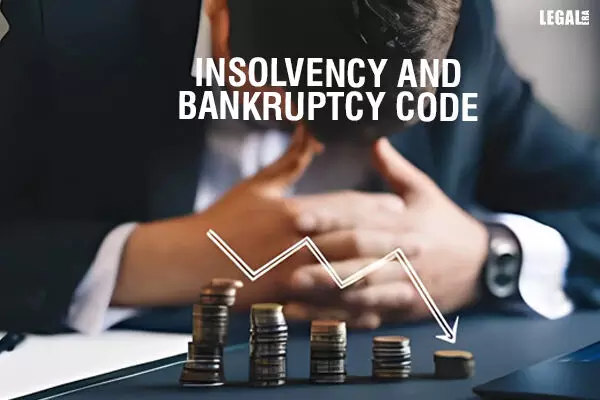- Home
- News
- Articles+
- Aerospace
- AI
- Agriculture
- Alternate Dispute Resolution
- Arbitration & Mediation
- Banking and Finance
- Bankruptcy
- Book Review
- Bribery & Corruption
- Commercial Litigation
- Competition Law
- Conference Reports
- Consumer Products
- Contract
- Corporate Governance
- Corporate Law
- Covid-19
- Cryptocurrency
- Cybersecurity
- Data Protection
- Defence
- Digital Economy
- E-commerce
- Employment Law
- Energy and Natural Resources
- Entertainment and Sports Law
- Environmental Law
- ESG
- FDI
- Food and Beverage
- Gaming
- Health Care
- IBC Diaries
- In Focus
- Inclusion & Diversity
- Insurance Law
- Intellectual Property
- International Law
- IP & Tech Era
- Know the Law
- Labour Laws
- Law & Policy and Regulation
- Litigation
- Litigation Funding
- Manufacturing
- Mergers & Acquisitions
- NFTs
- Privacy
- Private Equity
- Project Finance
- Real Estate
- Risk and Compliance
- Student Corner
- Take On Board
- Tax
- Technology Media and Telecom
- Tributes
- Viewpoint
- Zoom In
- Law Firms
- In-House
- Rankings
- E-Magazine
- Legal Era TV
- Events
- News
- Articles
- Aerospace
- AI
- Agriculture
- Alternate Dispute Resolution
- Arbitration & Mediation
- Banking and Finance
- Bankruptcy
- Book Review
- Bribery & Corruption
- Commercial Litigation
- Competition Law
- Conference Reports
- Consumer Products
- Contract
- Corporate Governance
- Corporate Law
- Covid-19
- Cryptocurrency
- Cybersecurity
- Data Protection
- Defence
- Digital Economy
- E-commerce
- Employment Law
- Energy and Natural Resources
- Entertainment and Sports Law
- Environmental Law
- ESG
- FDI
- Food and Beverage
- Gaming
- Health Care
- IBC Diaries
- In Focus
- Inclusion & Diversity
- Insurance Law
- Intellectual Property
- International Law
- IP & Tech Era
- Know the Law
- Labour Laws
- Law & Policy and Regulation
- Litigation
- Litigation Funding
- Manufacturing
- Mergers & Acquisitions
- NFTs
- Privacy
- Private Equity
- Project Finance
- Real Estate
- Risk and Compliance
- Student Corner
- Take On Board
- Tax
- Technology Media and Telecom
- Tributes
- Viewpoint
- Zoom In
- Law Firms
- In-House
- Rankings
- E-Magazine
- Legal Era TV
- Events
NCLAT Allows Former Promoter To Participate In CIRP Despite CoC's Disqualification, Citing Relaxation Under Section 29A Of IBC

NCLAT Allows Former Promoter to Participate in CIRP Despite CoC's Disqualification, Citing Relaxation Under Section 29A of IBC
The National Company Law Appellate Tribunal (NCLAT), presided over by Justice Sharad Kumar Sharma (Member Judicial) and Jatindranath Swain (Member Technical), dismissed an appeal filed by Meir Commodities Pvt Ltd, which challenged the participation of a promoter of NCS Sugar Ltd in the Corporate Insolvency Resolution Process (CIRP).|
A Section 7 application was filed by Punjab National Bank, and based on this application, the Corporate Insolvency Resolution Process was initiated against the company on July 24, 2022. The Resolution Professional (RP) appointed to handle the insolvency process started calling for applications from prospective resolution applicants.
The respondent also decided to participate in the resolution process of Meir Commodities. However, the Committee of Creditors (CoC) decided in their meeting to disqualify the respondent from participating, claiming that he defaulted on payments and was responsible for the demise of the company.
The appellant challenged this decision before the NCLT, Hyderabad. The Telangana High Court, before the CoC meeting, stated that the appellant should not be considered a wilful defaulter. Upholding the decision of the High Court, the tribunal stated that the respondent should not be considered a defaulter and should be allowed to participate in the Corporate Insolvency Resolution Process (CIRP).
Aggrieved by the order of the tribunal, the appellant challenged the same before the National Company Law Appellate Tribunal (NCLAT) in Chennai.
The appellant stated that the respondent was a defaulter who had not paid the dues within the required time period. They also argued that the respondent was responsible for the company facing the resolution process, and according to Section 29(A) of the IBC, a person who is a defaulter and has contributed to the downfall of the company is disqualified from participating in the resolution process.
The respondent contended that the Telangana High Court had ruled that he should not be considered a defaulter and should be allowed to participate in the resolution process. The tribunal referred to the judgment of the Principal Bench, NCLAT, New Delhi, in PRIO S.A. v. Mr. Pravin R. Navandar & Ors., which specifically cited paragraphs 9 and 10 to assert that, as a prospective resolution applicant (PRA), the appellant had a legally vested right to appeal against the impugned decision.
The NCLAT upheld the decision of the Telangana High Court, stating that the respondent should not be termed a “wilful defaulter” and should be allowed to participate in the resolution process. The tribunal noted that the respondent had previously engaged in negotiations with the CoC and the RP and had also revised his plan, thereby reinforcing his right to challenge the application procedure.
As a result, the application was dismissed by the tribunal.


